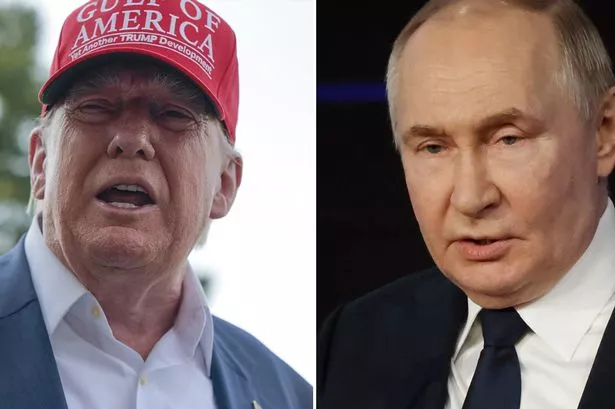In a significant diplomatic exchange, U.S. President Donald Trump and Russian President Vladimir Putin engaged in a phone conversation today, marking their sixth publicly acknowledged discussion since Trump’s return to the presidency. The Kremlin confirmed that the dialogue primarily focused on the ongoing conflicts in Ukraine and Iran, with Putin issuing a stark warning about Russia’s intentions in Ukraine.
According to Yuri Ushakov, Putin’s foreign affairs adviser, the Russian leader emphasized the necessity of resolving international disputes through political and diplomatic channels. This conversation follows the U.S. military’s recent operations in Iran, which Trump described as a “very successful” effort to dismantle Tehran’s nuclear capabilities. Meanwhile, the situation in Ukraine remains tense, with Trump advocating for a swift cessation of hostilities, while Putin reiterated Moscow’s commitment to achieving its objectives, including addressing what he termed the “root causes” of the conflict.
Putin’s Warning and the NATO Controversy
Putin’s warning to Trump underscored Russia’s determination to secure its strategic goals in Ukraine. He reiterated the Kremlin’s stance that any peace agreement must involve Ukraine abandoning its NATO ambitions and recognizing Russia’s territorial acquisitions. This position is rooted in Russia’s longstanding narrative that Ukraine’s NATO aspirations pose a direct threat to Russian security, a claim that Kyiv and its Western allies categorically reject.
The conversation between Trump and Putin comes as the Pentagon announced a temporary halt on certain weapon shipments to Ukraine, including air defense systems and precision-guided artillery. This pause is part of a broader review of U.S. military stockpiles, with details confirmed by anonymous U.S. officials familiar with the matter. Notably, Ushakov stated that the suspension of U.S. military aid was not a topic of discussion during the Trump-Putin call.
Implications for U.S.-Russian Relations
The renewed dialogue between Trump and Putin signals a potential thaw in U.S.-Russian relations, which have reached their lowest point since the Cold War due to the ongoing conflict in Ukraine. The previous call between the two leaders occurred shortly after an Israeli attack on Iran, highlighting the complex geopolitical landscape that both nations must navigate.
Ukrainian President Volodymyr Zelenskyy, speaking in Denmark, expressed his intention to discuss the U.S. weapons delivery suspension with Trump in the coming days. Zelenskyy acknowledged the differences between Trump and Putin, noting, “I’m not sure that they have a lot of common ideas, common topics to talk about, because they are very different people.”
Historical Context and Future Prospects
The current geopolitical tensions echo historical patterns of U.S.-Russian relations, where periods of confrontation are often followed by attempts at rapprochement. The ongoing conflict in Ukraine, initiated by Russia’s invasion in February 2022, has been a major flashpoint, with Russia citing the need to protect Russian speakers and counter NATO’s influence.
Experts suggest that the outcome of these diplomatic engagements could significantly impact the broader geopolitical landscape. Dr. Elena Korosteleva, a professor of international politics, commented, “The dialogue between Trump and Putin could either pave the way for de-escalation or further entrench the divisions between East and West.”
“The dialogue between Trump and Putin could either pave the way for de-escalation or further entrench the divisions between East and West.” — Dr. Elena Korosteleva
Looking Ahead
As the world watches closely, the next steps in U.S.-Russian relations will be crucial. The potential for a diplomatic resolution to the Ukraine conflict remains uncertain, with both sides holding firm to their respective positions. Meanwhile, the international community continues to grapple with the implications of these high-stakes negotiations.
The Trump administration’s approach to Russia and its handling of the Ukraine crisis will undoubtedly be scrutinized in the coming months, as global leaders seek to balance power dynamics and maintain stability in an increasingly complex international arena.
